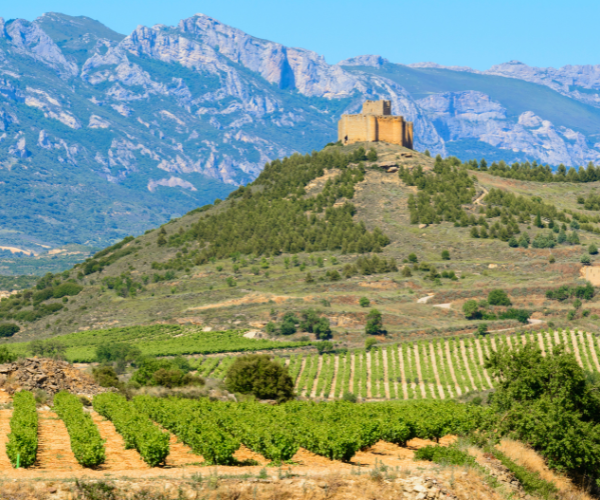Of all the great gigs I’ve enjoyed as a consultant to the culinary industry (including The Chopping Block, of course!), there’s been none better than representing Wine & Food from Spain. I got to travel to Spain, participate in opening many Chicagoland tapas restaurants and learn the fascinating culture of Spanish wine. Here are some of my favorite tidbits that you may enjoy too!
Spain introduced winemaking to California and the New World: You may be surprised to learn that no wine grape is native to the Western Hemisphere. Chardonnay, Cabernet, and other grapes made it to California in the mid-1800’s, but American vineyards had set down roots since the 1600’s, planted by the first non-native settlers, Spanish conquistadors and missionaries. The exact grape they imported from Spain is lost to history, but when mated with indigenous grapes, it was dubbed Criolla (like creole, meaning of mixed descent). The new American wine was so successful it competed with Spanish imports, so vineyards were ordered to be ripped out. But even the Spanish king couldn’t command the Church, whose good padres had nurtured souls and vineyards up through today’s California and south to Chile and Argentina. These vineyards eventually gave birth to the American wine culture that the world enjoys today.

Get to Know Your Grapes, Sauvignon Blanc, Pinot Noir, Grenache, Friday, October 21, 6pm: Learning your grapes is the first step to understanding wine, just like learning your colors is a first step to understanding painting. But just as blue may be sky blue or aqua and still be blue, each grape expresses various hues of flavor - from tart to toasty, for instance, or from ripe berries to aged meat. Join me as we taste three prominent grapes in two styles each, to understand how soil, climate and human culture create a rainbow of flavor that is wine. Tasting includes 2 Sauvignon Blanc’s (France and Chile), 2 Pinot Noir’s (Oregon and France - Champagne!), and 2 Grenache’s, the original Rhone Ranger! (Spain and France). Noshes will be served during class.

So, you may ask, why isn’t Spain as famous for her wine as France, Italy or even California? For 36 years, Spain was ruled by a tee-totaling isolationist. Francisco Franco ruled Spain from 1939 through 1975. As a non-drinker, he viewed wine only as a profit engine, demanding the cheapest, mass-produced wine possible. As fine vineyards were ripped out, winegrowing families fled Spain, or dug up and replanted their finest vines in off-the-beaten path hinterlands. While other countries experienced a wine boom of international acceptance and technological advance, Spain was isolated. Following Franco’s death, Spain established trade organizations, including Food and Wines from Spain, to support traditional winegrowing and to carry Spain’s fine wine to the world. Lucky for me, this coincided with Chicago’s discovery of a most-exciting Spanish culinary tradition!
